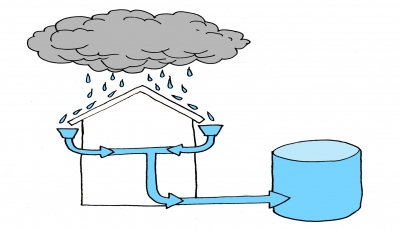Enhancing Environmental Sustainability Through Strategic Liquid Waste Elimination Solutions
In the world of environmental sustainability, the reliable administration of liquid waste stands as a crucial prime focus in maintaining our ecosystems and securing public health. The complex web of obstacles surrounding liquid waste disposal requires a tactical strategy that surpasses conventional techniques. By checking out sustainable solutions tailored to specific contexts, industries can not only minimize ecological injury yet additionally unlock long-lasting advantages for their procedures. As we navigate the intricacies of fluid waste elimination in today's landscape, it becomes increasingly apparent that an aggressive stance is important. Allow us begin on a journey to reveal the transformative possibility of calculated liquid waste monitoring techniques in improving ecological sustainability.
Relevance of Fluid Waste Administration

One of the crucial factors why fluid waste monitoring is necessary is its straight influence on public health and wellness. Correct monitoring of liquid waste assists protect against these wellness risks and ensures the health of the population.

Obstacles in Fluid Waste Disposal
Provided the crucial significance of appropriate fluid waste administration in guarding public health and ecological health, it is imperative to deal with the various difficulties associated with liquid waste disposal practices. One considerable challenge is the lack of ample facilities for the collection, therapy, and disposal of liquid waste. Numerous areas, particularly in developing countries, have problem with not enough facilities and sources to deal with the enhancing volume of liquid waste produced. This results in improper disposal methods such as unloading in water bodies or unauthorized garbage dumps, presenting significant health and wellness risks and environmental air pollution.
Another challenge is the existence of dangerous substances in fluid waste, consisting of chemicals, hefty steels, and pathogens. Appropriate recognition and treatment of these unsafe components need customized understanding and devices, which might not constantly be readily offered. In addition, the cost of applying safe disposal methods can be too high for some districts and industries, leading to more and non-compliance ecological damage.
Sustainable Liquid Waste Solutions
In the middle of the pressing visit site demand for efficient fluid waste management techniques, the important of sustainable remedies arises as a vital worry for ecological conservation and public wellness. Sustainable liquid waste options incorporate a variety of cutting-edge innovations and practices aimed at reducing the environmental effect of waste disposal.
Furthermore, sustainable liquid waste services prioritize the conservation of water resources with the implementation of water recycling and reuse methods. By treating and repurposing wastewater for non-potable applications like irrigation or industrial procedures, these remedies add to water conservation efforts and decrease the strain on freshwater sources. Overall, the combination of sustainable fluid waste services not just supports environmental sustainability however likewise promotes a much healthier and much more resistant society for future generations.
Advantages of Strategic Elimination Practices
Tactically implemented removal methods play an important role in optimizing fluid waste administration my response systems for ecological sustainability and public health defense. By taking on strategic removal methods, organizations can significantly decrease the environmental impact of liquid waste disposal.
In addition, these techniques promote resource healing by allowing the removal of valuable materials from liquid waste streams. This not just minimizes the reliance on virgin resources but also supports the round economic situation concepts of reuse and recycling. In addition, critical elimination practices can boost functional effectiveness and cost-effectiveness by simplifying waste management processes and enhancing resource allocation. Overall, the benefits of strategic elimination techniques expand beyond ecological sustainability to incorporate economic advantages and improved public wellness results.
Applying Reliable Environmental Strategies
Reliable application of ecological methods is extremely important in attaining lasting fluid waste administration methods. To begin with, firms should conduct comprehensive ecological evaluations to identify possible dangers and impacts connected with their fluid waste disposal processes. By understanding the ecological ramifications of their operations, companies can create targeted methods to decrease damage to ecological communities and public health.
In addition, applying reliable environmental techniques involves establishing clear objectives and purposes for liquid waste monitoring - Industrial waste water treatment. These goals ought to specify, measurable, achievable, relevant, and time-bound (SMART) to make certain liability and track progress in the direction of sustainability targets. Companies can likewise take advantage of these details innovation and advancement to enhance liquid waste treatment procedures, minimize source consumption, and enhance total efficiency
Collaboration with regulatory agencies, stakeholders, and environmental specialists is an additional crucial element of effective approach implementation. By involving with outside partners, organizations can gain valuable insights, gain access to sources, and make sure conformity with ecological laws and guidelines. Overall, a strategic and positive strategy to ecological monitoring is essential for alleviating environmental dangers and advertising long-term sustainability in fluid waste removal practices.
Final Thought
Finally, calculated liquid waste elimination services play an essential duty in improving ecological sustainability. By addressing the obstacles in fluid waste disposal and carrying out sustainable practices, we can lower the negative influence on the environment - Liquid waste removal. It is vital to prioritize efficient ecological approaches to ensure the long-lasting health and well-being of our planet
By applying effective waste monitoring practices, such as appropriate collection, treatment, and disposal methods, the threats linked with liquid waste can be considerably minimized.
Provided the vital value of appropriate liquid waste administration in guarding public health and wellness and ecological well-being, it is imperative to address the countless obstacles associated with liquid waste disposal practices. Lasting fluid waste solutions encompass a variety of ingenious technologies and techniques aimed at lowering the environmental impact of waste disposal.Purposefully executed removal practices play an essential duty in maximizing liquid waste administration systems for ecological sustainability and public health and wellness protection. In general, a positive and calculated technique to environmental monitoring is vital for alleviating ecological dangers and advertising long-term sustainability in liquid waste elimination methods.